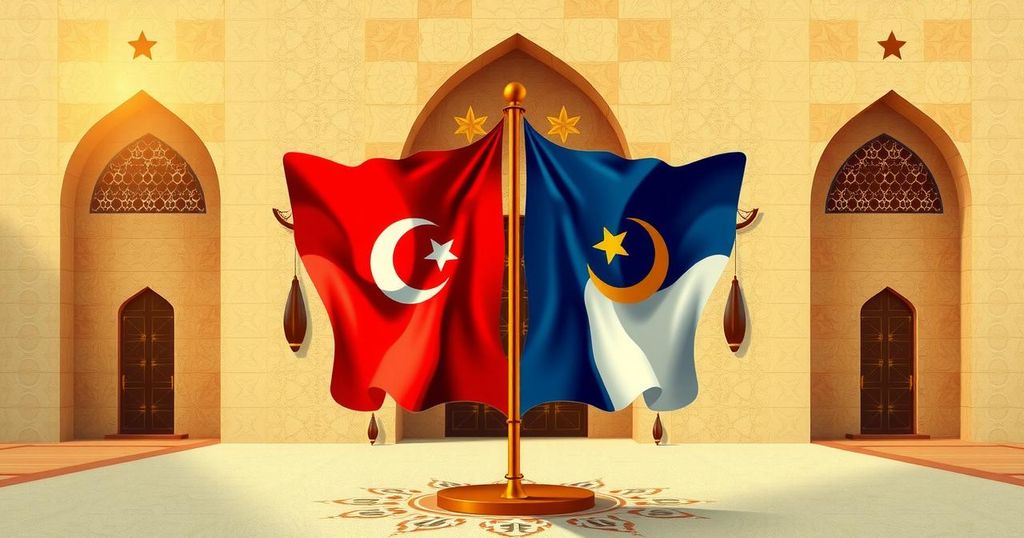Moroccan Foreign Minister Nasser Bourita met Syrian Foreign Minister Assaad Hassan Al-Chibani in Mecca, signaling a thaw in relations. Bourita reiterated support for Syria’s unity and aspirations for stability. The meeting occurred during the GCC-Morocco ministerial gathering, leading to discussions about reopening Morocco’s embassy in Damascus following shifts in Syria’s political landscape. The GCC also reinforced Morocco’s sovereignty over Western Sahara, with regional backing for Syria’s transition process.
On Thursday, Moroccan Foreign Minister Nasser Bourita convened with Syrian Foreign Minister Assaad Hassan Al-Chibani in Mecca, marking a significant shift in diplomatic relations between Morocco and Syria. During their discussions, Bourita emphasized Morocco’s unwavering commitment to Syria’s national sovereignty and unity, stating, “The Kingdom of Morocco follows closely the important developments in Syria,” while expressing solidarity with the aspirations of the Syrian people for stability and development.
This meeting occurred on the margins of the seventh joint ministerial gathering between the Gulf Cooperation Council (GCC) and Morocco, which took place in Mecca on March 6. The meeting, chaired by Kuwait’s Foreign Minister Abdullah Ali Abdullah Al Yahya, primarily focused on enhancing strategic partnerships between the GCC and Morocco. Furthermore, the diplomatic engagement follows a recent message from King Mohammed VI to Syria’s transitional president Ahmad Al-Sharaa, where the King reaffirmed Morocco’s commitment to regional peace and stability.
Morocco’s outreach represents a significant policy shift, having previously closed its embassy in Damascus in 2012 due to disagreements with the Assad regime amid the Syrian civil war. With the recent political changes in Syria following the Assad government’s decline, discussions regarding the potential reopening of Morocco’s embassy in Damascus have started. This realignment also reflects a departure from the historically strained relations characterized by Syria’s support for Algeria during the Sand War and its backing of the Polisario Front.
Additionally, the GCC meeting addressed the Western Sahara issue, with Secretary General Jasem Mohamed Albudaiwi referencing UN Security Council Resolution 2756, confirming unwavering support for Morocco’s sovereignty over the region. Syria’s transitional government, led by Al-Sharaa, is proposing a transition period of four to five years to implement political reforms and establish an electoral framework, though its positions on regional matters, including Western Sahara, are yet to be fully articulated.
The decision to engage diplomatically has received broad regional support, with several Arab nations, such as Qatar, Saudi Arabia, the UAE, Kuwait, Oman, Jordan, and Yemen, endorsing the transition process in Syria. This development signifies a collective Arab commitment to navigating the new political landscape in Syria and fostering regional cooperation.
In conclusion, the meeting between Morocco’s Foreign Minister Nasser Bourita and Syria’s Foreign Minister Assaad Hassan Al-Chibani in Mecca indicates a meaningful shift towards improved diplomatic relations. Morocco has reaffirmed its support for Syria’s unity and development, while the regional response has demonstrated collective Arab backing for Syria’s political transition. This newfound engagement potentially heralds a new chapter in the historically complex relationship between Morocco and Syria.
Original Source: www.moroccoworldnews.com




